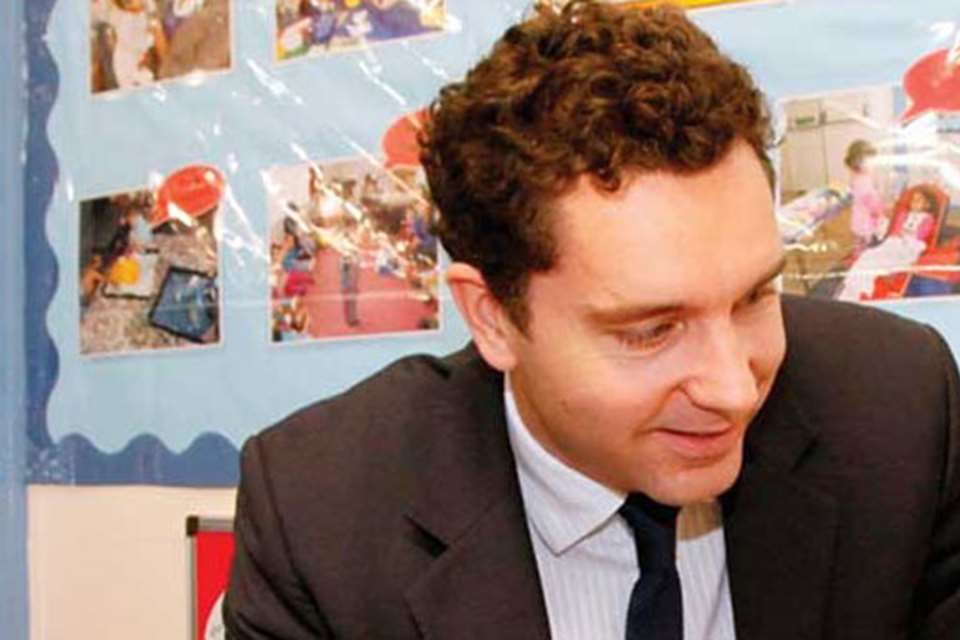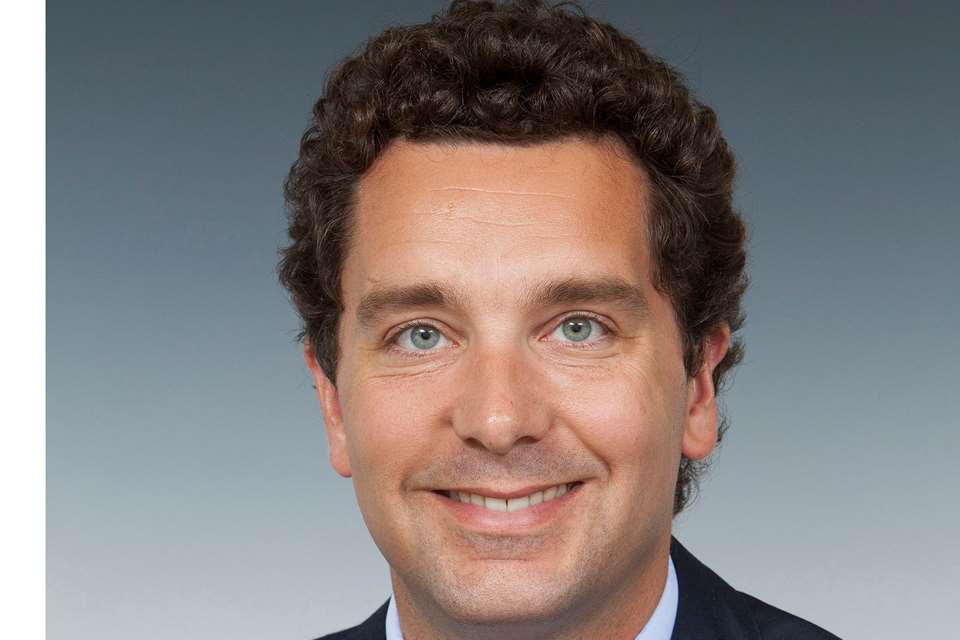EYFS Best Practice: All about ... SEND Code of Practice
Ruth Thomson
Monday, September 8, 2014
The process for identifying and supporting those with special educational needs and disabilities has been given an update. Kay Mathieson considers how the changes will affect practice.
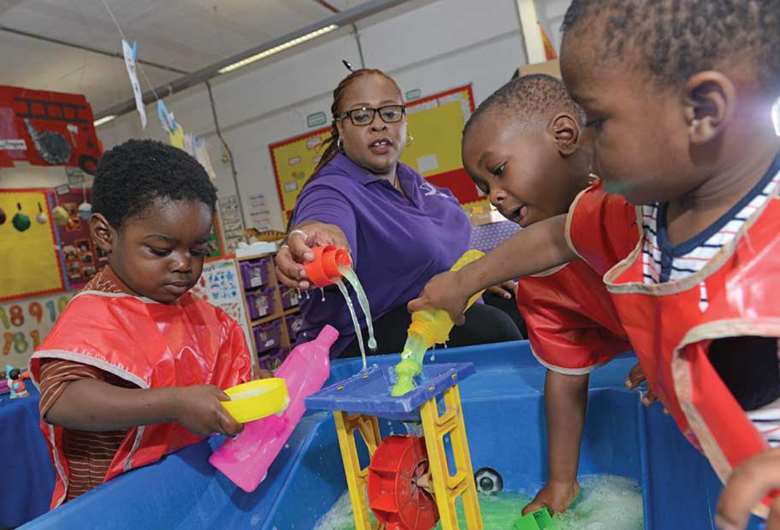
The Children and Families Act 2014 is wide-ranging legislation updating the law as it relates to children and families. As part of this act, the process for identifying and supporting those with special educational needs and disabilities (SEND) has been revised. The guidance, the SEND Code of Practice, has received final parliamentary approval and came into force on 1 September.
It is important to recognise that not all children with special educational needs (SEN) will have a disability and that not all children with a disability will have SEN.
However, there is considerable overlap and many children will have both special educational needs and disabilities.
The SEND Code of Practice complements and supports previous legislation, specifically:
- Equality Act 2010 - promoting equality of opportunity and anti-discrimination, requiring providers to make reasonable adjustments to include those with SEN and disabilities.
- Early Years Foundation Stage (EYFS) statutory framework for all funded (maintained and private, voluntary and independent) EYFS provision.
The revised EYFS Statutory Framework (March 2014) already states that providers must have arrangements in place to support children with special educational needs or disabilities. Furthermore, the inclusive principles embedded in the EYFS, provide an appropriate environment in which to implement the new SEND guidance. High-quality EYFS practice is, by its nature, inclusive and is strengthened by the changes to be implemented.
In brief, the new SEND Code of Practice promotes:
- - inclusion in experiences and activities alongside peers
- - early identification of children's needs
- - early intervention to meet those needs
- - the importance of children and parents/carers being central to decision making, and
- - multi-agency collaboration.
WHO DOES THE CODE APPLY TO?
The SEND Code of Practice applies to those from birth to 25 years old who have special educational needs or disabilities. Detailed definitions are laid out at the beginning of the document, but here is a summary.
- - A child is considered to have special educational needs 'if they have a learning difficulty or disability that calls for special educational provision to be made for him or her'.
- - Learning difficulty or disability is defined for children of compulsory school age as having 'significantly greater difficulty in learning than the majority of others of the same age or having a disability preventing them making use of facilities of a kind generally provided for others of the same age'.
- - For children aged two or more, special educational provision is educational or training provision that is additional to or different from that made generally for others of the same age.
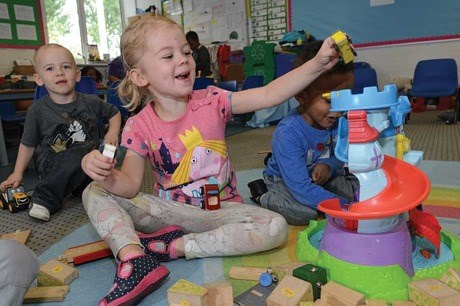
THE UNDERLYING PRINCIPLES OF THE CODE
The three principles underlying the code of practice are stated as having regard to:
- - the views, wishes and feelings of the child and their parents
- - the importance of the child and their parents being enabled to participate as fully as possible in decisions, including provision of the information and support necessary
- - supporting parents and child so that they achieve the best possible educational and other outcomes, preparing the child effectively for adulthood.
This document certainly strengthens the importance of parents and children being central to decision making, but also requires that they are well supported to make informed decisions. In response to previous professional and parental complaints about the challenges in understanding what provision is available and how it can be accessed, local authorities are now required to publish their 'local offer'.
This must be easily accessible and more than just a directory of services. The intention is that with increased joint commissioning between education, health and social care, the local offer will provide a comprehensive picture of local provision, responsive to local need.
Those who access the provision - children, young people and their parents - are to be encouraged to give feedback and influence future commissioning. This local offer will be an important source of information for special educational needs co-ordinators (SENCOs) as well as families. But EYFS providers are also encouraged to contact their local authority to provide details of how they are able to support children with SEND and their families.
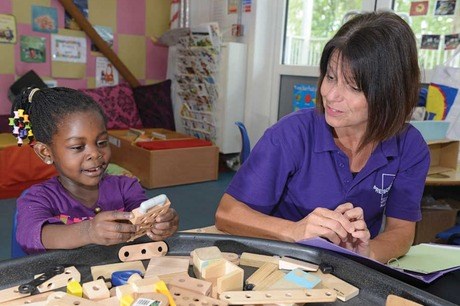
HOW WILL THE CODE AFFECT EARLY YEARS PRACTICE?
Early years has a dedicated chapter in the guidance, providing detailed guidance about supporting early identification and intervention. The chapter begins by reinforcing that all children are entitled to an education that enables them to:
- - achieve the best possible educational and other outcomes
- - become confident young children with a growing ability to communicate their own views and ready to make the transition into compulsory education.
High expectations and a culture of recognising each child's competencies will be characteristics of high-quality provision. The EYFS is a particularly important phase of education where emerging needs can become apparent. A child's development is rapid during this time, but patterns of progress will vary for each individual. Practitioners must therefore be alert to tracking progress and responding to any indications that a child is having difficulties.
Key changes
There are several key changes that will impact on practice. Firstly, the previous Early Years Action, Early Years Action Plus and Statement of Special Educational Needs will no longer apply. For children with high-level needs likely to require specialist provision, an education, health and care plan (EHCP) will follow a multi-professional assessment and detail the support required to meet the child's needs. However, the 'graduated response' remains and is now to be applied using a cycle of 'assess, plan, do, review.'
This links with the EYFS observation, assessment and planning cycle and it is important to review these processes together avoiding duplication of paperwork and ensure that the SEND process is not separate but an extension of the EYFS.
Assess
This requires an analysis of a child's needs based on observations or specific assessments checking that the current support offered is matching the child's needs.
A holistic view of the child is important, recognising how each of the prime areas impact on each other but also noting other factors that may affect the child's progress at this particular time.
Plan
The planning will be based on agreement between parents, key person, SENCO and any other relevant specialists about the appropriate outcomes or next steps for this child.
Once the next steps are agreed, the interventions and support needed to bring this about can be detailed. Evidence of previously effective interventions and the child's characteristics of effective learning need to be taken into account. This will include details of how parents/carers can support progress at home.
Do
Once the plan has been agreed, the SENCO and key person oversee the implementation of the interventions. All practitioners remain responsible for working with all children, with the key person maintaining their closer relationship and monitoring of progress for children in their key group.
The SENCO supports practitioners with assessing the effectiveness of interventions, problem solving and advising on effective practice.
Review
The key person, SENCO and parents should evaluate the impact and quality of the support. This includes taking into account the child's views. Changes to outcomes or interventions can then be agreed with parents to increase the impact on progress.
This cycle represents the 'graduated response' with increasing detail required each time, as the adult's knowledge and understanding of the child's learning and progress lead to more effective support. If 'despite purposeful action' the child makes little or no progress over a sustained period then practitioners and parents should consider seeking advice and support beyond the setting.
Practitioners should be able to demonstrate that they have employed their 'best endeavours' in making sure that a child with SEND gets the support they need. The evidence gathered through this process will contribute to the multi-agency assessment and application for an EHCP, should this be necessary.
In addition to the ongoing use of the assess, plan, do, review cycle, more formal assessment processes such as the Progress Check at Age Two, Foundation Stage Profile and - from 2015 - the baseline assessment on entry to Reception year will be opportunities to review each child's progress and consider whether there is evidence of emerging special educational needs.
These offer a chance to bring together evidence of effective interventions, and characteristics of effective learning for discussion between parents and practitioners, the question being, 'What more can we do to support this child's learning?'
The SEND Code of Practice supports our understanding of the interrelatedness of the prime areas and identifies four broad areas of need:
- - communication and interaction
- - cognition and learning
- - social, emotional and mental health
- - sensory and physical.
This is not to say that a child's needs will neatly fit into one of these areas. For most children with SEND, they will have difficulty in more than one area and this may change over time. Practitioners and parents need to focus on the individual child, their current strengths, barriers to learning and participation in activities.
Keeping the child's needs at the centre of everyone's thinking, with parents/carers supported to make informed decisions about appropriate interventions and provision, is a key theme in this document. This person-centred approach is based on the Early Support Programme and recommended in the code of practice as useful for supporting effective working with families.
The materials are available from www.councilfordisabledchildren.org.uk/earlysupport, providing detailed information about specific special educational needs, disabilities and suggestions to improve the quality of support for children and their families.
The role of the SENCO
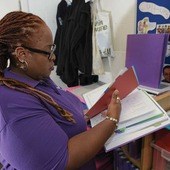 All EYFS settings are expected to identify a SENCO. In maintained nurseries this must be a teacher with relevant experience or SENCO qualification. Their role is described in the guidance as:
All EYFS settings are expected to identify a SENCO. In maintained nurseries this must be a teacher with relevant experience or SENCO qualification. Their role is described in the guidance as:
- - ensuring all practitioners in the setting understand their responsibilities to children with SEND and the setting's approach to identifying and meeting SEND
- - advising and supporting colleagues
- - ensuring parents are closely involved throughout and that their insights inform action taken by the setting
- - liaising with professionals or agencies beyond the setting.
In reality, this will include:
- - keeping under review the arrangements in place for meeting the needs of children with SEND
- - establishing and maintaining positive relationships with all parents/carers
- - working with individual colleagues to build confidence and understanding about inclusive practice, effective planning of next steps, implementing agreed interventions appropriately and demonstrating inclusive attitudes in their practice
- - having an overview of the tracking progress system, working with colleagues to follow up on any early signs that a child may not be making expected progress
- - establishing and maintaining links with local mainstream and special provision, as well as specialists such as speech and language therapists and health visitors to support transitions, professional development and improving setting quality
- - establishing and maintaining positive relationships with local authority early years and SEND teams, attending SENCO networks to ensure they have up-to-date knowledge of local procedures to support children with SEND, including understanding the part they play in securing an EHCP, should this be necessary.
Funding and support
 Over recent years, the support available from local authorities has reduced considerably in some areas. This SEND Code of Practice requires local authorities to ensure 'that there is sufficient expertise and experience among local early years providers to support children with SEN.' It is likely that there will be some changes to local practice and this will be detailed in the local offer.
Over recent years, the support available from local authorities has reduced considerably in some areas. This SEND Code of Practice requires local authorities to ensure 'that there is sufficient expertise and experience among local early years providers to support children with SEN.' It is likely that there will be some changes to local practice and this will be detailed in the local offer.
Local authorities must also ensure that providers funded to deliver early education meet the needs of children with SEND. This is to include making sure that funding arrangements reflect the need to provide suitable support for these children.
Moving forward
This document links very well with the EYFS, so there are no shocks or surprises. It reinforces the principles of the Unique Child, Positive Relationships, Enabling Environments and Learning and Development. It sees every child as a competent learner with individual characteristics of effective learning, with practitioners deepening their understanding of these in order to identify emerging difficulties and employ increasingly effective interventions.
Documenting and evidencing the actions taken to support a child's learning is essential, but it is crucial that one system is used for all children, avoiding duplication or unnecessary form-filling.
Relationships with parents are the keystone of effective practice in the EYFS. When we first meet a family we do not know whether their child will have SEND in the future.
Therefore, every relationship and 'settling-in' process must be of sufficiently high quality to include being responsive to individual needs and robust enough to include conversations about a child's emerging needs.
All practitioners in a setting are responsible for all children, but relationships with individuals need to complement each other, such as the key person, room leader, SENCO and manager roles. Effective leadership and management approaches will make use of supervision to ensure that the roles work well together in day-to-day practice, and also in how they contribute to overall improvement in setting practice.
Implementing the SEND Code of Practice offers settings an opportunity to review practice with all children and their families, taking time to consider practitioner attitudes, skills, knowledge and understanding and how these can be improved using supervision and professional development opportunities.
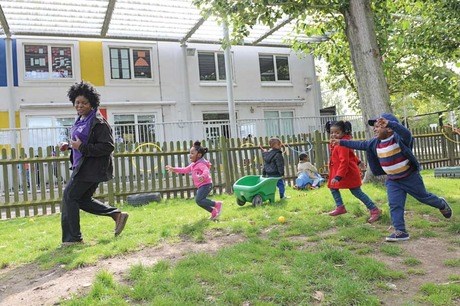
ESSENTIALS
- - The assess, plan, do, review cycle will be used with increasing frequency and detail to meet a child's needs.
- - Children and parents' views must be central to decision making.
- - The Education, Health and Care Plan replaces the Statement of SEN.
- - A 'local offer' of SEND provisions has to be published by local authorities.
- - Maintained nurseries and schools need to publish an annual SEND information report.
- - There is joint commissioning between education, health and social care to meet local priorities in SEND provision.
WHAT DO I NEED TO DO?
Download a copy of the SEND Code of Practice.
There are 270 pages so you may not want to print it all, but you need to be able to refer to more than just the early years chapter. The document is available from www.gov.uk/government/publications/send-code-of-practice-0-to-25.
To review existing observation, planning and tracking systems, ask:
- - do they support early identification of SEND?
- - do they link with the assess, plan, do, review cycle avoiding repetition in paperwork?
Check that SEN systems provide evidence of:
- - impact of interventions
- - engaging effectively with parents as decision makers
- - assessing and analysing all the evidence available about a child's progress, including the Progress Check at Age Two, parents' observations from home and specialist advice - for example, from a speech and language therapist
- - taking a holistic view of the child, noting inter-relatedness of the prime areas and broad areas of need in the SEND Code of Practice
- - building an increasingly detailed understanding of a child's needs and their approaches to learning.
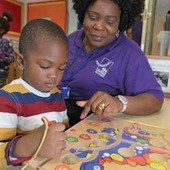 You will also need to find out about your local authority's 'local offer'. Questions you could ask include:
You will also need to find out about your local authority's 'local offer'. Questions you could ask include:
- - where do I find it?
- - how can I contribute?
- - what do I know about the local SEN provision?
- - what does my setting offer for children with SEND, and does the local authority know about this?
- - what is the local process for requesting an EHCP?
Check the date, time and venue of the next local authority for:
- - training for SENCOs
- - SENCO network events.
Lastly, make a list of sources of useful information and support. Investigate, for example, the Early Support Programme (www.nhs.uk/carersdirect/guide/parent-carers/pages/ early-support-programme.aspx) and visit the Contact a Family website (www.cafamily.org.uk), for families with disabled children.
Kay Mathieson is an early years consultant. Her book Inclusion in the EYFS is due for publication by Open University Press in September. http://kaymathieson.co.uk
NURSERY WORLD SHOW
Kay Mathieson will be delivering two seminars at the Nursery World Show 2015, on 'The prime areas of learning: making the vital links to achieve best practice' and 'Approaches and strategies to managing child behaviour'. The show takes place on 6 and 7 February at the Business Design Centre in London, and features a fantastic line-up of expert speakers, as well as a major exhibition of leading early years suppliers.There are also two special masterclasses - 'Meeting the emotional and learning needs of two-year-olds' on Friday and 'How Children Learn: delivering and assessing best practice', led by the world-renowned Professor Ferre Laevers, with Jan Dubiel, on Saturday.
For more information and booking, see www.nurseryworldshow.com.



